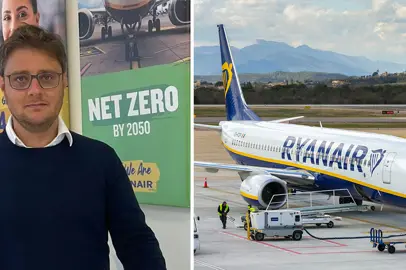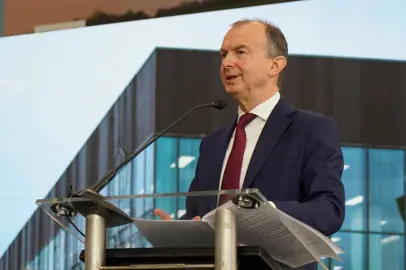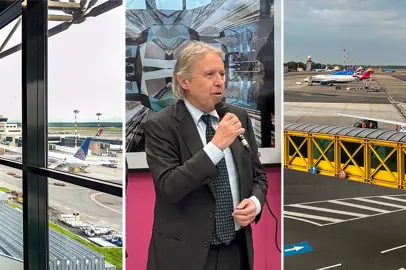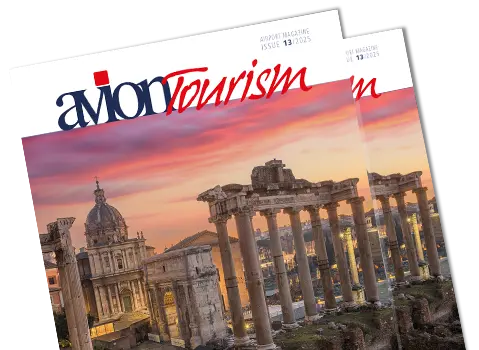Interview with Emre Pekesen
Our success relies heavily on cross-functional teamwork. I work closely with teams across pricing, marketing, operations, and finance to develop competitive pricing strategies, manage distribution channels, and implement tactics that support high load factors and revenue targets.
Balancing operational constraints with commercial objectives is a collective responsibility, and by fostering strong interdepartmental coordination, we ensure our airline remains competitive, profitable, and aligned with broader strategic goals".
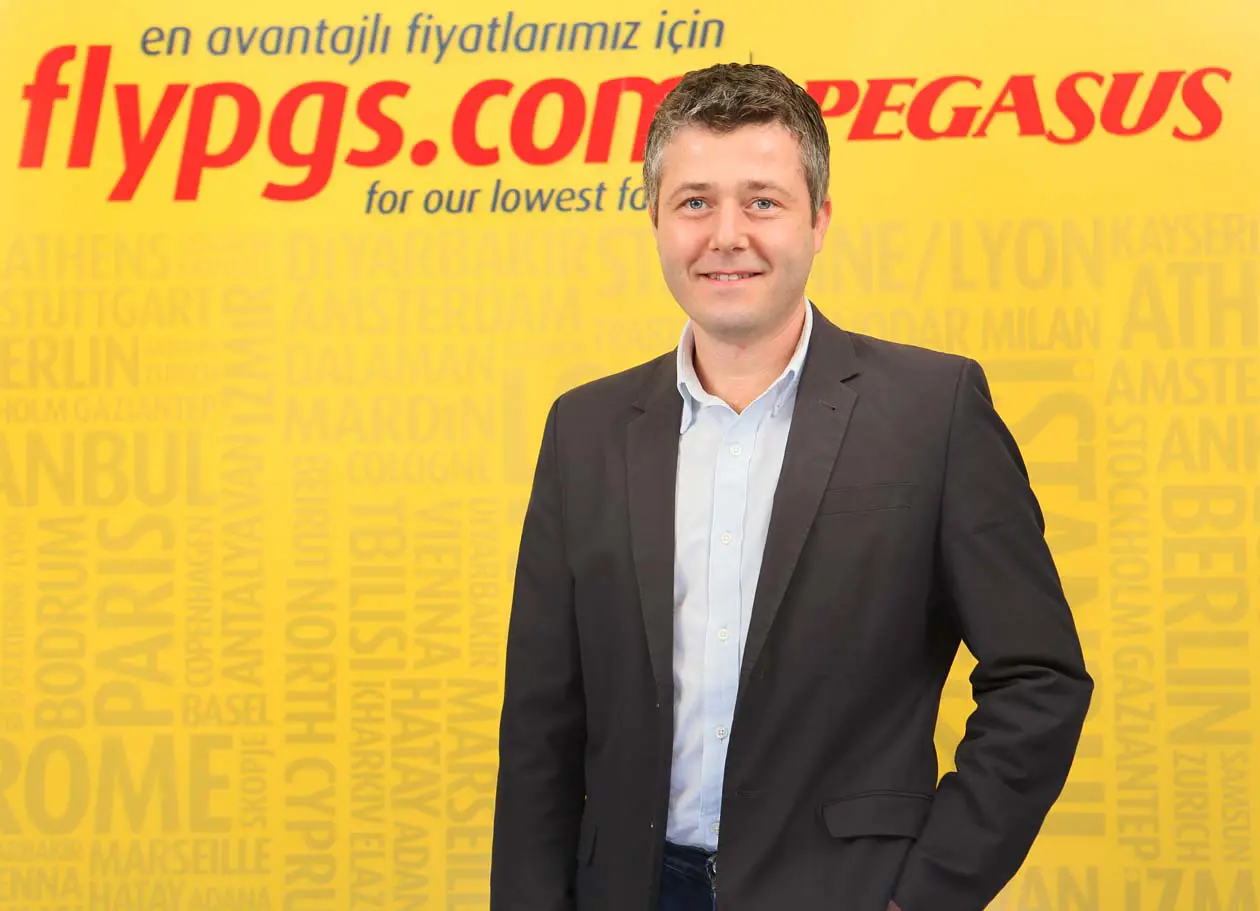
Pegasus Airlines, founded in 1990, has become the leading low-cost airline in Turkey. What have been the key factors behind this success?
We operate one of the world's youngest fleets, continuously expand our financing options, and maintain one of the industry's lowest CASKs. Cost efficiency is in our DNA.
We are determined to evolve to meet the growing demand for sustainable travel. In March 2025, we reached our lowest-ever carbon emissions per passenger - 57.5 grams of CO₂ per passenger kilometre. That means we're more than halfway to hitting our 2030 emissions reduction goal.
Our goal is to harness the power of digital technology to shape the future of aviation. With visionary programs like FlyGPT and our Silicon Valley-based Innovation Lab, we are building infrastructure that addresses not only today's needs but also tomorrow's expectations. Every step we take reinforces Pegasus' future as smarter, more competitive, and more technology driven. We're steadily advancing towards our goal of ranking among the top three airlines globally for technology".
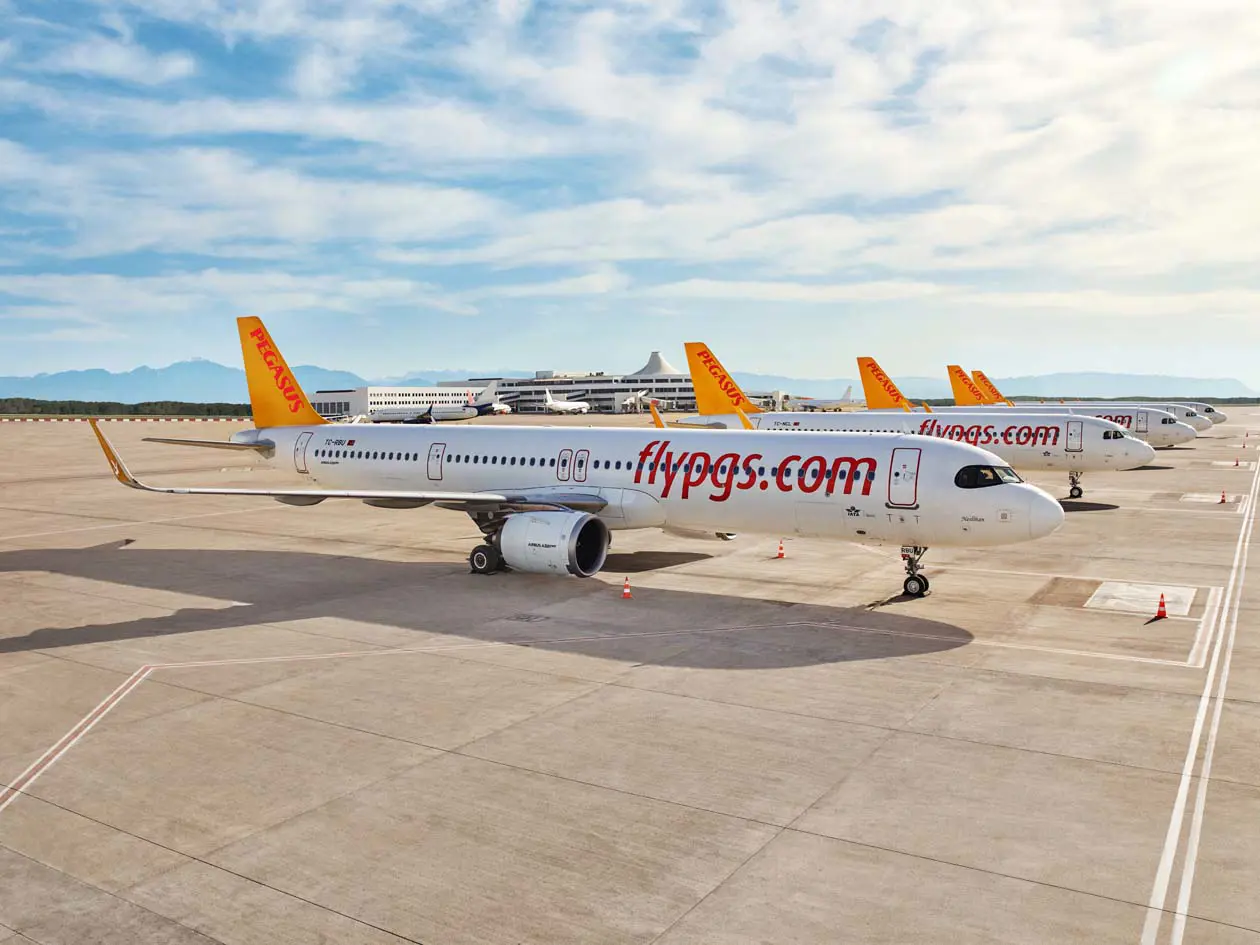
Over the past 35 years, Pegasus Airlines has significantly expanded its route network. What are the airline's current hubs, and how many destinations does your network cover?
Our growth will continue to come from expanding our flight network across Europe, MENA, Central Asia and Türkiye. Our aim is to continue launching new destinations, and to increase frequencies to existing destinations, within the scope of the bilateral flight rights".
Which routes are currently available in Italy, and are there any plans to introduce new destinations in the near future?
"We currently fly direct to Milan, Venice, Bologna, and Rome. Subject to the terms of the bilateral agreement between the two countries, we would be highly interested in exploring opportunities to introduce new destinations in Italy".
"As well as being an increasingly popular destination, Türkiye is a gateway to destinations throughout MENA and Central Asia for Europeans. From Sabiha Gokcen Italian travellers can head on to Dubai, Abu Dhabi, Amman, Tbilisi, Tehran, Shiraz, Isfahan, Bishkek, Almaty, Hurghada and Sharm el Sheikh, as well as Türkiye’s summer hotspots such as Bodrum, Izmir, Antalya and Dalaman".
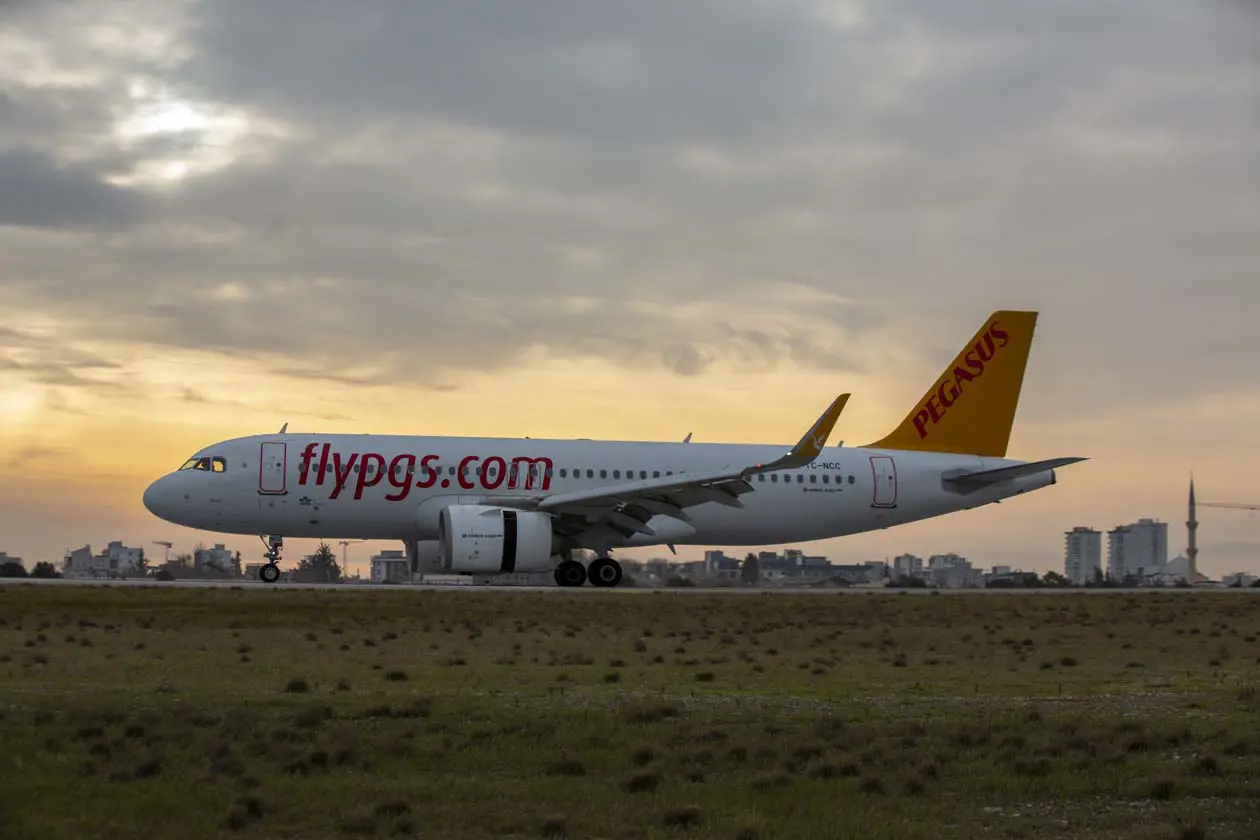
What aircraft models are currently part of your fleet, and what are their key features?
"We operate one of the world's youngest fleets - 119 aircraft averaging just 4.7 years as of 31 March 2025, earning us ch-aviation's World's 2nd Youngest Fleet Award (for fleets over 100 aircraft). Our modern fleet comprises 9 B737-800s, 6 A320ceos, 46 A320neos and 58 A321neos, with new-generation A320neo and A321neo aircraft. These new generation aircraft features cutting-edge CFM Leap engines that reduce fuel consumption and emissions by up to 20%. Deliveries began in 2016 and continue steadily through 2029, with the fleet expected to reach 127 aircraft by the end of 2025 and an average seat count of 228 by 2029".
Pegasus Airlines has already been recognized for its commitment to sustainability. As part of the Net Zero 2050 goal, do you currently use SAF, and do you have any plans for fleet acquisitions or upgrades?
"Our fleet includes over 100 A320neo/A321neo aircraft, with 50 A321neo aircraft remaining on order. New-generation A321s offer several advantages over previous models, including improved fuel efficiency, reduced emissions, and increased range. These benefits deliver cost savings for airlines, enhanced passenger experience, and a reduced environmental impact.
In December 2024, we placed our largest-ever aircraft order with Boeing, securing 100 firm Boeing 737-10 aircraft for delivery from 2028 and options for up to 100 more. The 737-10 is perfectly suited to meet our long-term capacity needs, offering enhanced efficiency and one of the best per-seat economics among single-aisle aircraft. The aircraft will be equipped with CFM International LEAP-1B engines. These engines are designed to offer significant improvements in fuel efficiency, noise reduction, and emissions compared to previous generation engines.
SAF plays a central role in our Climate Transformation Roadmap and is regarded as the most critical tool for decarbonising aviation. We are working closely with our stakeholders to scale up its use, particularly as EU requirements are expected to rise significantly, particularly from 2030 to 2035 onwards. It is also vital that Türkiye, our home base, develops the capacity to produce SAF through multiple pathways".
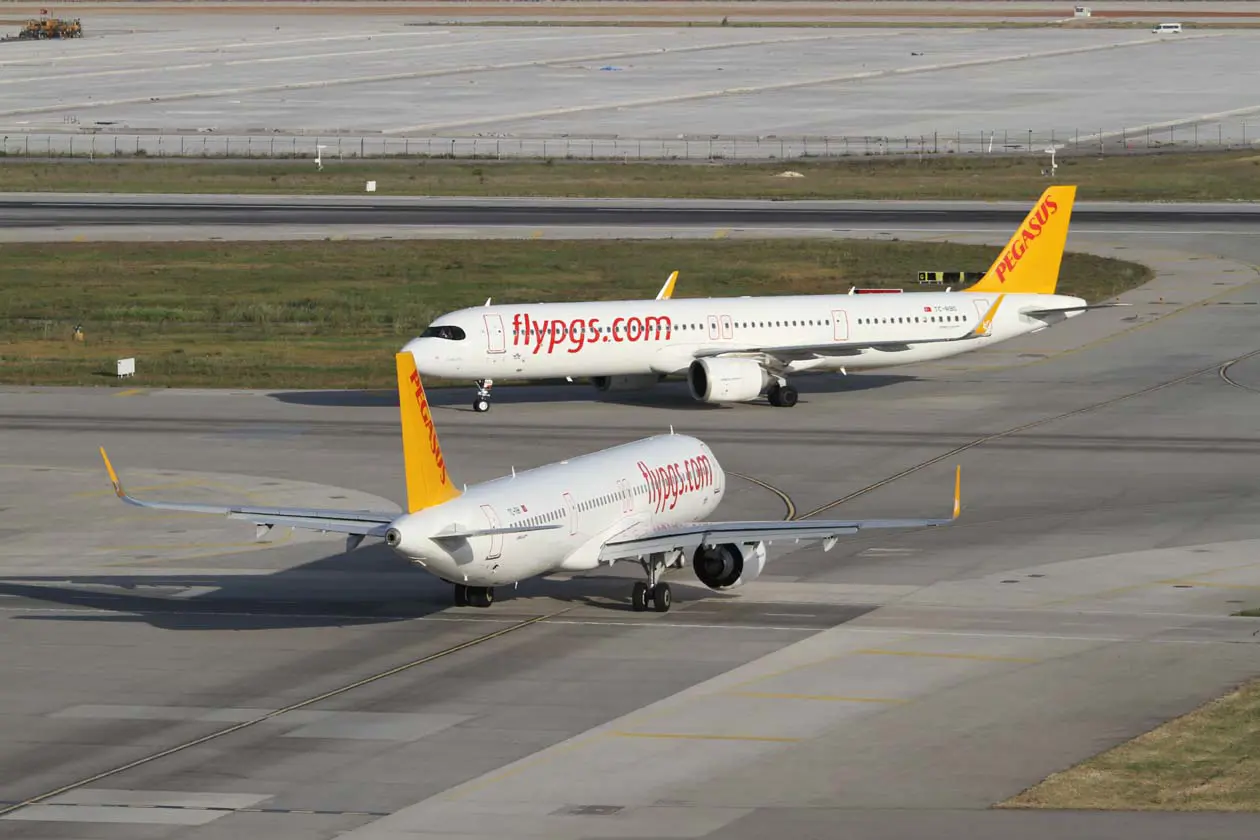
What additional services does Pegasus Airlines offer to enhance the passenger experience, from booking to airport services and in-flight comfort?
"We enhance the passenger experience with a user-friendly booking platform and mobile app, offering flexible fare options and add-ons such as seat selection, extra baggage, and pre-ordered meals. At the airport, services like mobile check-in, self-check-in kiosks at select airports, and fast bag-drop improve convenience. On board, our guests can enjoy pre-ordered meals and extra legroom seats, with digital in-flight entertainment and Wi-Fi. These services allow travellers to customise their journey based on comfort and budget preferences".
How does Pegasus Airlines integrate new technologies and artificial intelligence to improve operational efficiency and customer experience?
"We integrate new technologies and AI to drive both operational efficiency and a seamless customer experience. Through our FlyGPT program, we’ve implemented over 30 AI-powered solutions across the business, from predictive systems that reduce food waste to tools that streamline crew planning and technical maintenance. Our multilingual AI assistant, Peggy, supports customers 24/7, while internal bots like Jety and Hero enhance team productivity. We introduced Türkiye’s first ChatGPT-powered virtual assistant, helping travellers plan routes, activities and access flight information. Our iOS Live Activity integration delivers real-time updates about gate changes and delays directly to passengers’ iPhone lock screens. We’re committed to leading the aviation industry through smart, scalable, and future-focused innovation".
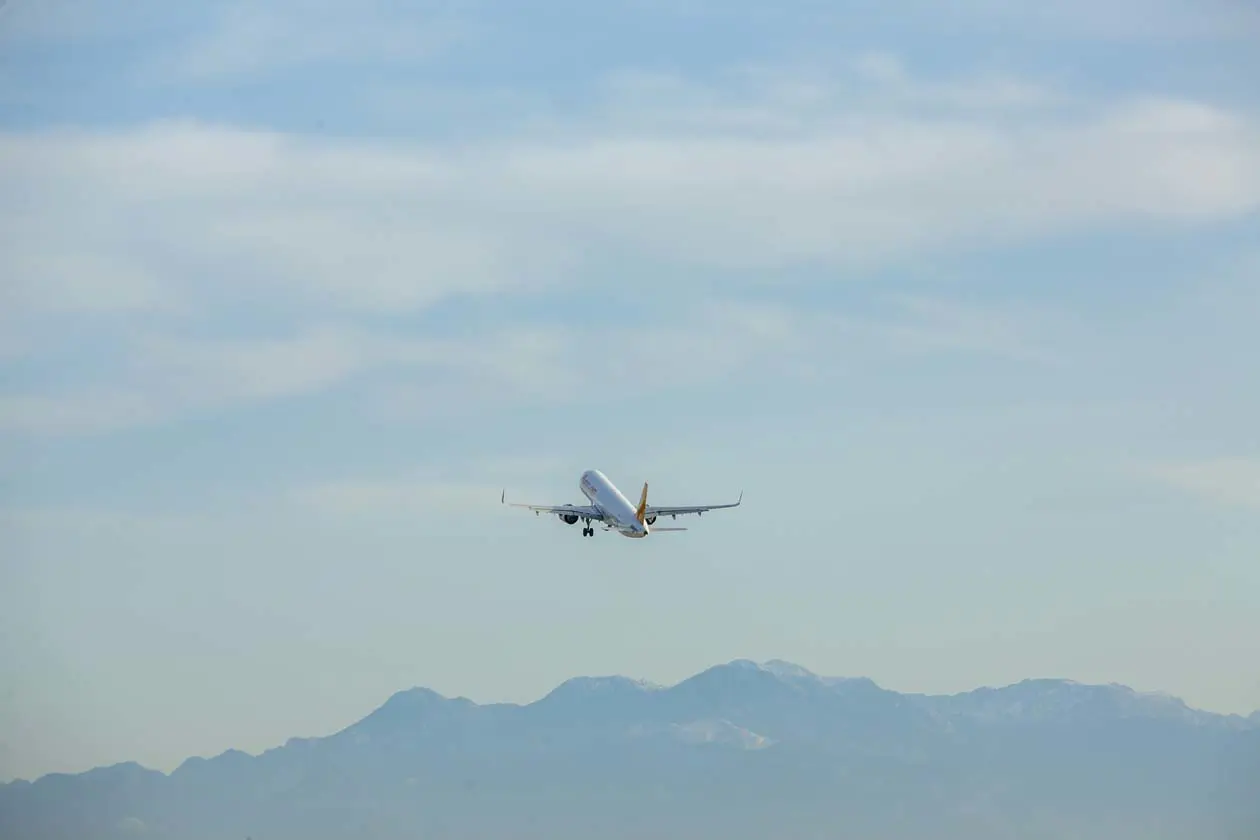
What are Pegasus Airline’s future plans in terms of network expansion, service innovation, and positioning in the global market?
"Pegasus Airlines will continue being one of the most profitable and operationally efficient airlines globally, delivering outstanding financial results and financial resilience.
In terms of network expansion, there are more than 500 airports in 67 countries within our fleet’s range. That means that currently we have close to 400 airports and 10 countries unexplored by us. We continue expanding our footprint across Europe, MENA, Central Asia and Türkiye.
We will continue working hard to stay one step ahead in technology. Through our investment in more efficient aircraft and our adoption of pioneering technology and AI, our aim is to steadily advance toward becoming a global leader in aviation".
